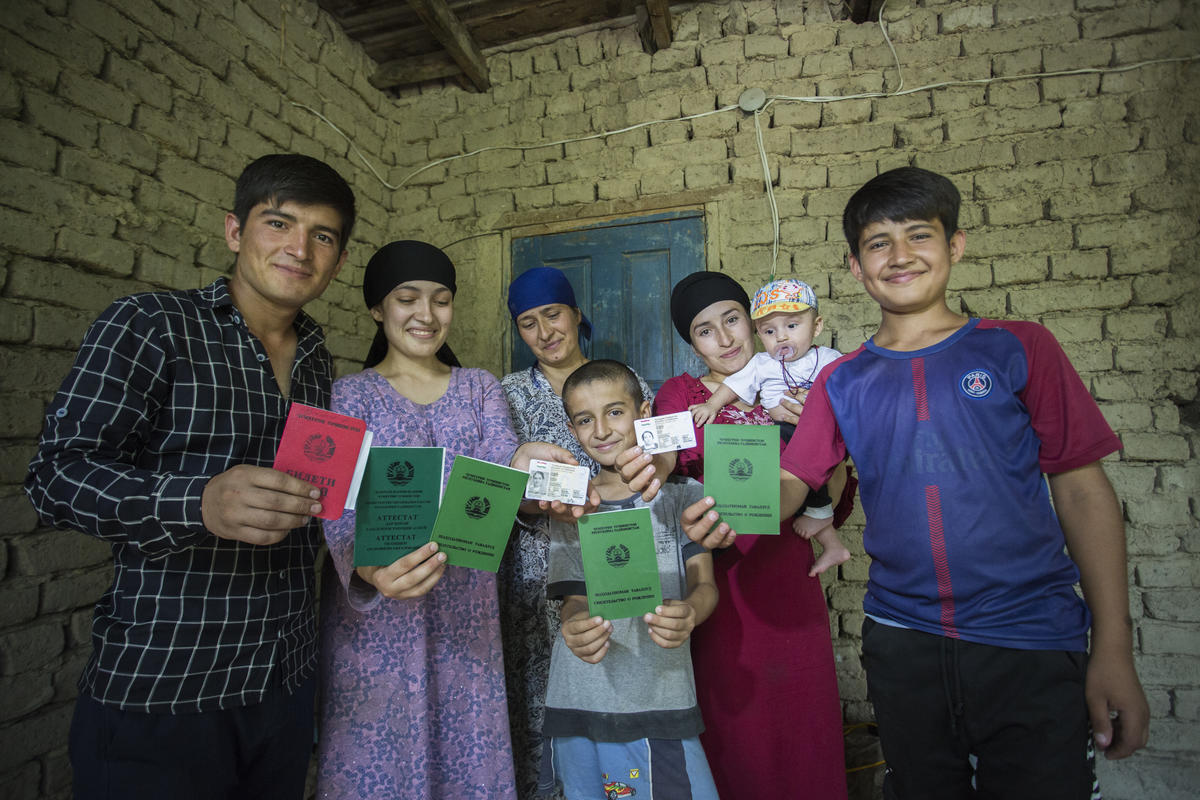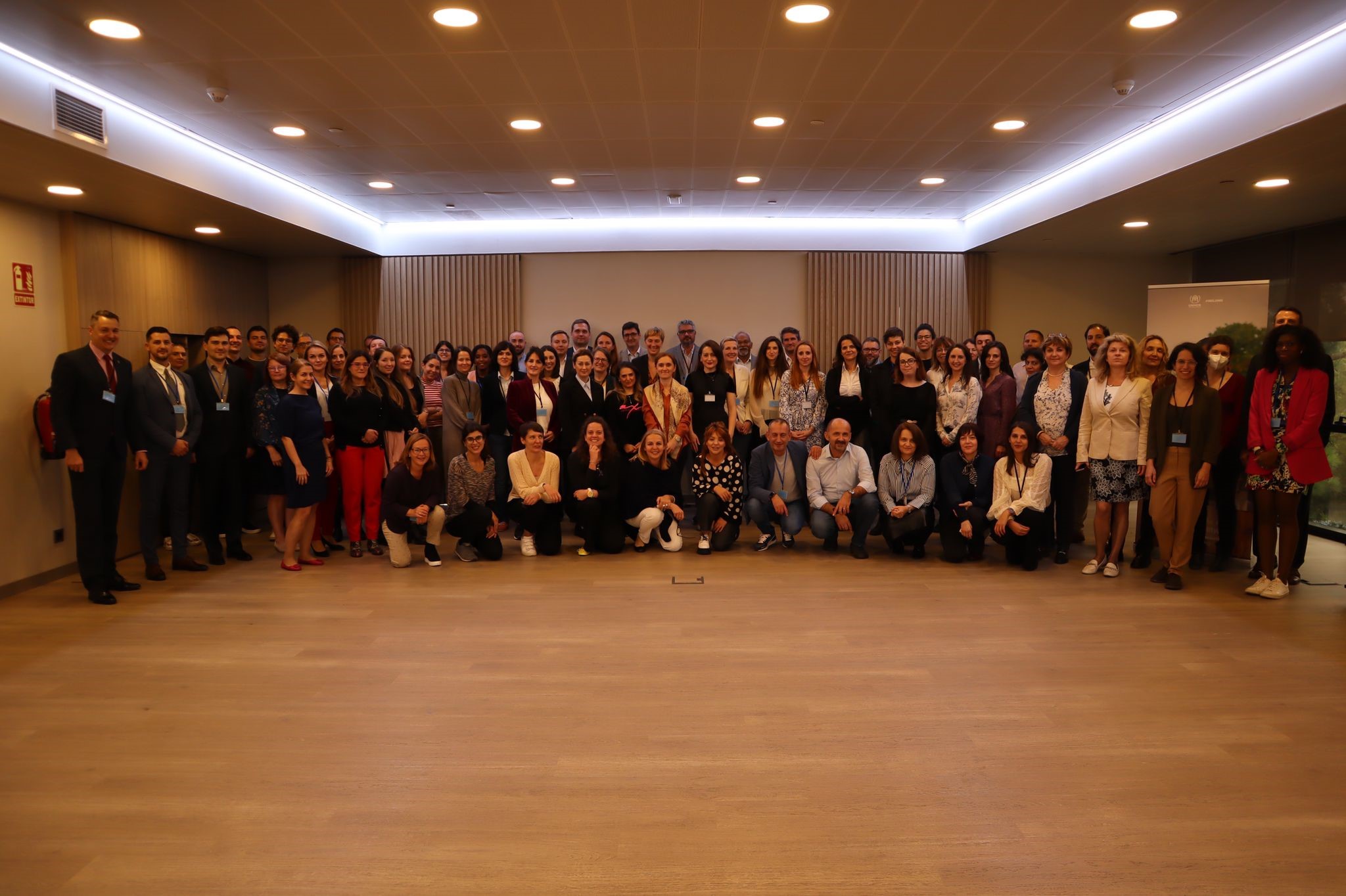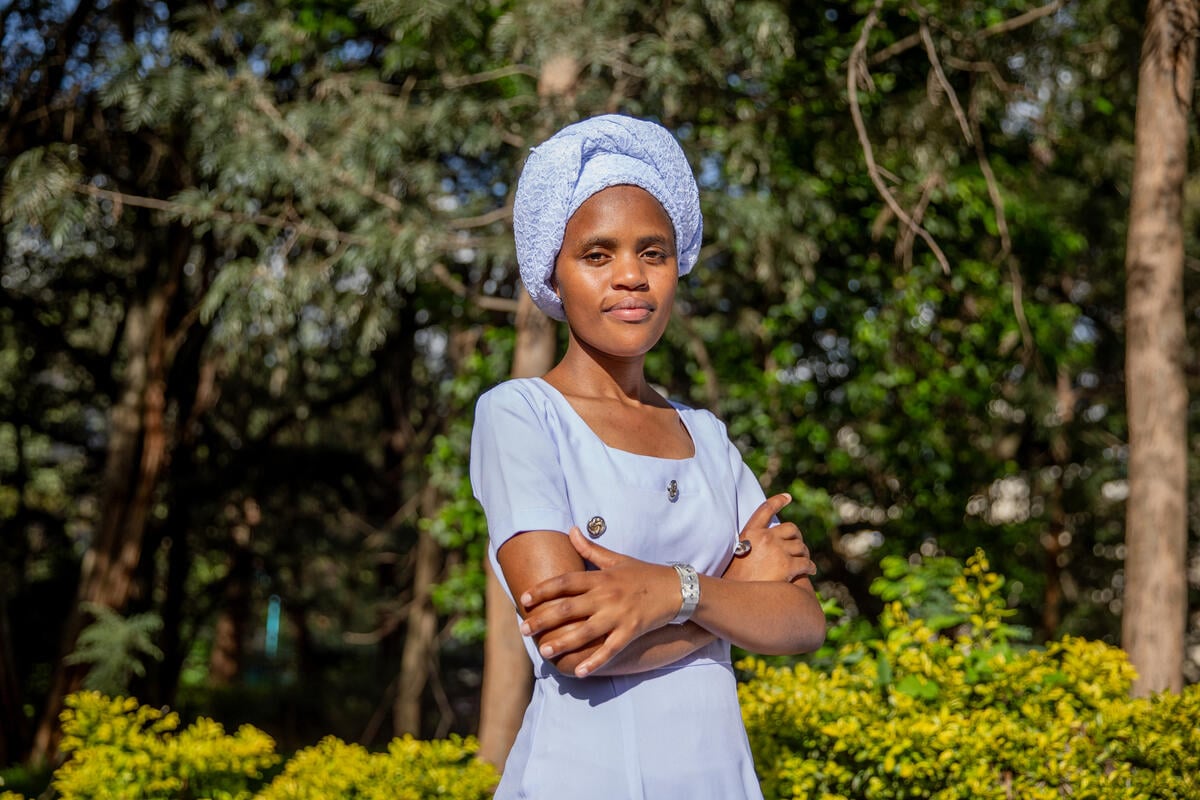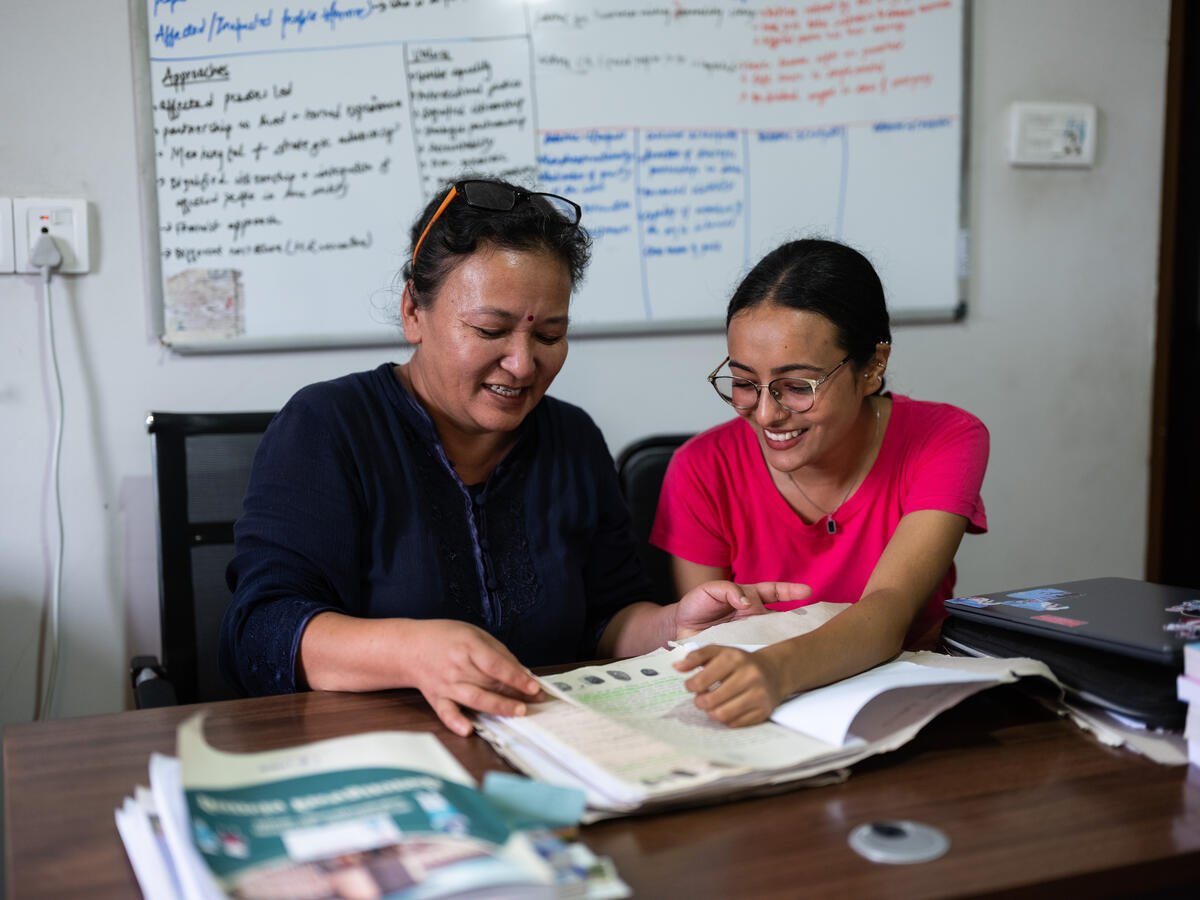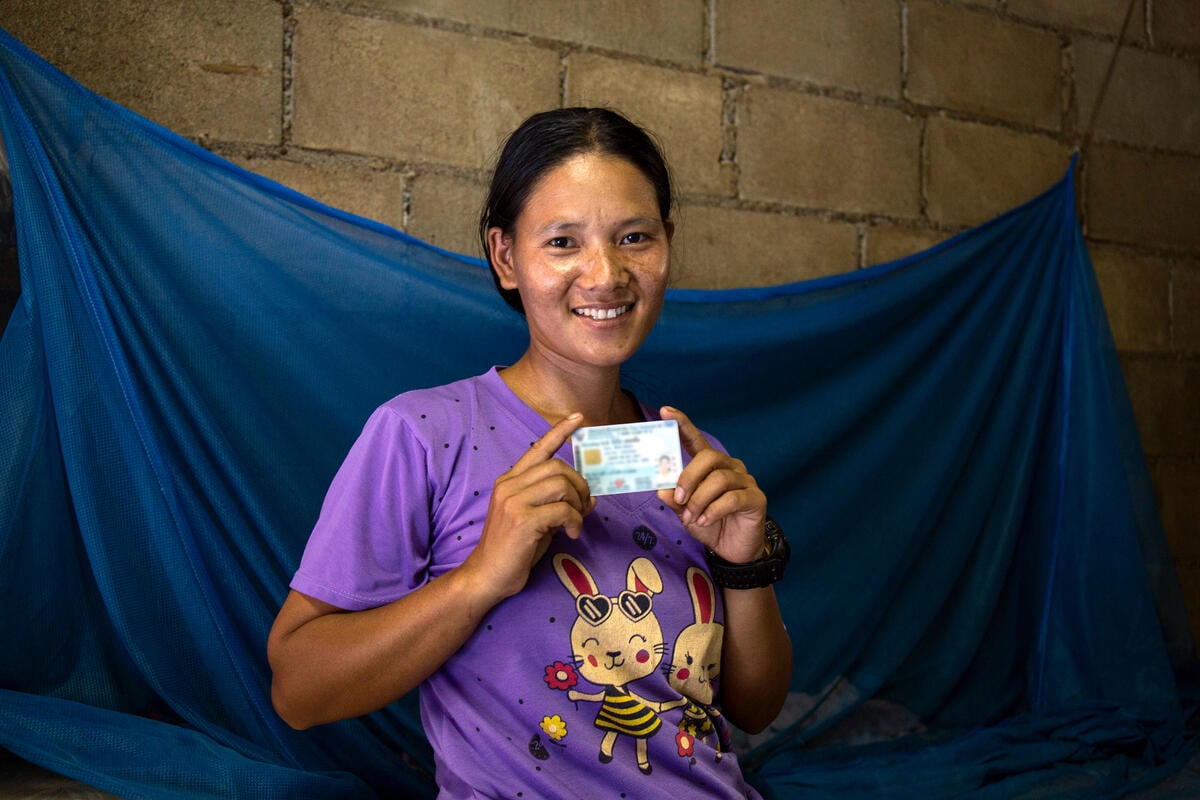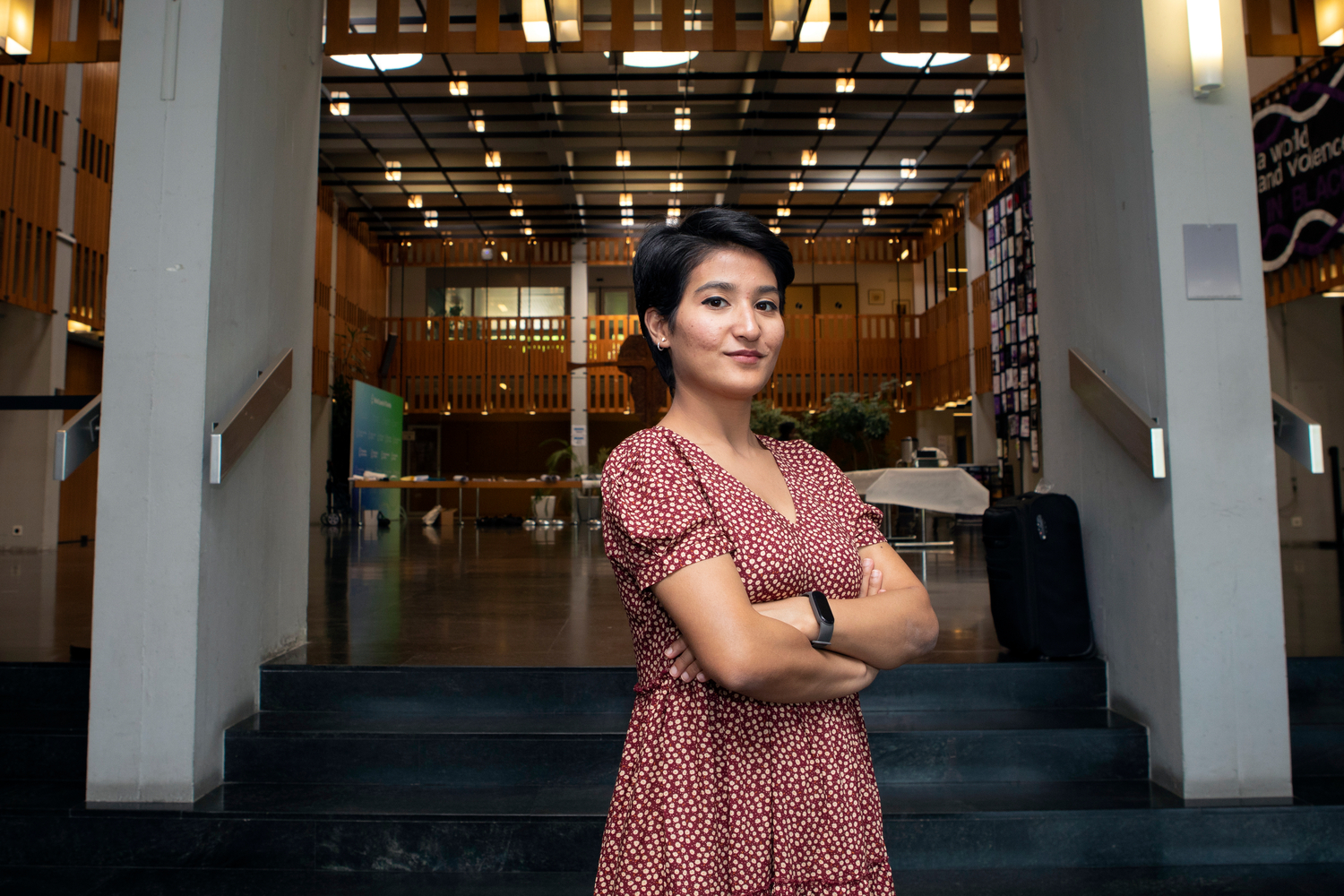Divorce leaves some Vietnamese women broken-hearted and stateless
Divorce leaves some Vietnamese women broken-hearted and stateless

HO CHI MINH CITY, Viet Nam, February 14 (UNHCR) - With the first words Phuong* utters about her failed marriage, the tears begin to fall.
"They tricked me, they cheated me," the 28-year-old Vietnamese woman says of her ex-husband and the marriage broker who sold her the dream of a route out of poverty by marrying a stranger from Taiwan. Her husband, she sobs, turned out to be a drug addict who beat her regularly.
Now back in Viet Nam with her 10-year-old daughter and seven-year-old son from the marriage, Phuong can consider herself one of the lucky ones. She and her children at least retained their Vietnamese citizenship.
Thousands of poor Vietnamese women who have married Taiwanese men over the last 10 years, only to see their dreams of an easy life crumble, have discovered when they come back to their homeland that they, and often their children, are stateless.
"My husband asked me to give up Vietnamese citizenship, but my family did not allow me to give it up," says Phuong, now grateful that they saved her from the limbo so many other women find themselves in. Between 1995 and 2002, more than 55,000 Vietnamese women married foreigners, with the figure approaching 13,000 in 2002 alone, according to Viet Nam Ministry of Justice statistics.
Precisely 86 percent of such marriages, according to a survey done by the Viet Nam Women's Union of Ho Chi Minh City, were contracted for economic reasons by Vietnamese women who dreamed of a better life abroad.
The bridegrooms - mainly from Taiwan, South Korea, Hong Kong and Singapore - are often older, poor workers who are unable to attract a woman or afford an elaborate wedding in their own prosperous countries.
Legal problems arise when the wife applies for naturalisation in her husband's country. In Taiwan, the process requires her to first renounce Vietnamese citizenship; if the marriage fails before she gets foreign citizenship, she ends up stateless.
Thousands of the marriages have failed, leaving, by government estimates, at least 3,000 Vietnamese women stateless. "For every stateless woman, and often for her children, this limbo is a tragedy," says Hasim Utkan, the Bangkok-based regional representative for UNHCR.
Without citizenship, they are adrift in their own country, not entitled to the vital family book identity document that rules dealings between citizens and government institutions in this country. They lose the very right to have rights - to work legally or to get social assistance. Their children, considered foreigners, are often excluded from state schools; stateless mothers face high tuition bills to send them to private schools.
"UNHCR is increasingly dedicated to trying to prevent and resolve statelessness around the world, and it is a particular concern of mine," said Utkan. "We are ready to help the Vietnamese government find ways to keep these women from becoming stateless. We are glad to see that this issue is being handled by the government with so much transparency, and are pleased that we are able to discuss the issue openly with the government."
UNHCR is also working with the government of Viet Nam to find a way to grant citizenship to some 9,800 people who escaped Cambodia's Khmer Rouge regime in the late 1970s by fleeing to Viet Nam, where they remain today, now well integrated into the life of their communities, but stateless.
US Secretary of State for Population, Refugees and Migration Ellen Sauerbrey, on a visit to Viet Nam and Cambodia earlier this month, urged the two countries to find a solution for these people who, she said, "can't own land, can't legally marry, have no citizenship rights [in Viet Nam]."
The stateless former economic brides often have no idea how to get their citizenship restored, and fall prey to the same type of unscrupulous intermediaries who sold them into marriage in the first place. One 36-year-old woman said a lawyer asked her for US$5,000 - a huge sum here - to process her papers to get her citizenship restored.
Justice department authorities in Ho Chi Minh City say they are working hard to restore citizenship to stateless women whenever they hear of such cases.
Nguyen Thi Diem Chi, a tall, self-assured 33-year-old, met her Taiwanese businessman husband when she worked for him as an interpreter in Ho Chi Minh City. She said her husband asked her to give up her Vietnamese citizenship, but then blocked her efforts to become naturalised in Taiwan. She says they broke up because "we were incompatible - my husband couldn't understand me."
Now back home with her two children - to whom she still speaks Chinese - she is building prosperity on her own. She works as the manager of a seafood restaurant and owns her own house. But it's a struggle without citizenship.
"It's difficult because I don't have an ID card or a family book, but I am trying to get my Vietnamese citizenship back and I think I am about to get it," she says. "Then life will be better."
* Name changed for protection reasons
By Kitty McKinsey in Ho Chi Minh City, Viet Nam

